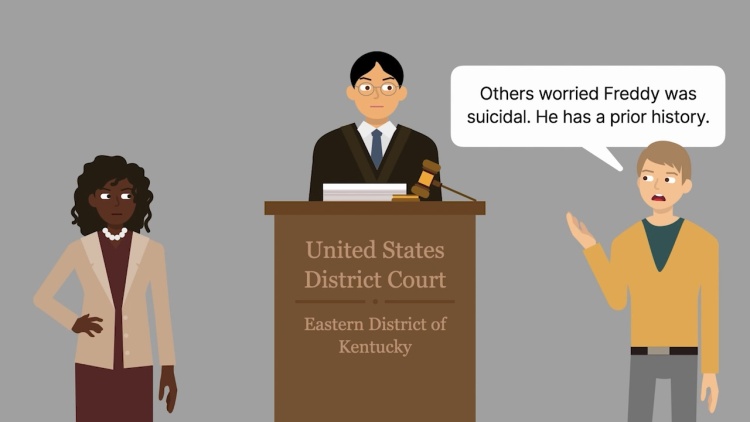United States v. Ridner
United States Court of Appeals for the Sixth Circuit
512 F.3d 846 (2008)
- Written by Samantha Arena, JD
Facts
In July 2003, police officers went to Ella Mae Goodin’s home attempting to execute an arrest warrant for Scotty Ridner (defendant), a convicted felon. When the officers arrived, Scotty ran, but was pursued and arrested. A search revealed three rounds of shotgun ammunition in Scotty’s pocket. Police also recovered a 12-guage shotgun from Goodin’s home. The United States (plaintiff) charged Scotty with being a convicted felon in possession of ammunition, in violation of federal law. The government moved to preclude Scotty from producing any evidence relating to a necessity defense. At a hearing on the motion, Scotty testified that on the morning of the incident, Goodin had told Scotty that his brother, Freddy Ridner, was talking about committing suicide. Later that day, Scotty and Freddy were sitting on the porch discussing Freddy’s intention to reclaim his shotgun from a pawnshop. Freddy went inside the house to retrieve three shotgun shells. Shortly thereafter, Freddy dropped the shells. Scotty picked up the shells and put them in his pocket. Scotty testified that he picked up the shells because he was concerned that Freddy might use them to attempt suicide. Scotty admitted, however, that he was unaware of the shotgun already inside the house and was worried about Freddy’s retrieval of his gun from the pawnshop. The district court granted the government’s motion. Scotty appealed.
Rule of Law
Issue
Holding and Reasoning (Merritt, J.)
What to do next…
Here's why 907,000 law students have relied on our case briefs:
- Written by law professors and practitioners, not other law students. 47,100 briefs, keyed to 996 casebooks. Top-notch customer support.
- The right amount of information, includes the facts, issues, rule of law, holding and reasoning, and any concurrences and dissents.
- Access in your classes, works on your mobile and tablet. Massive library of related video lessons and high quality multiple-choice questions.
- Easy to use, uniform format for every case brief. Written in plain English, not in legalese. Our briefs summarize and simplify; they don’t just repeat the court’s language.





